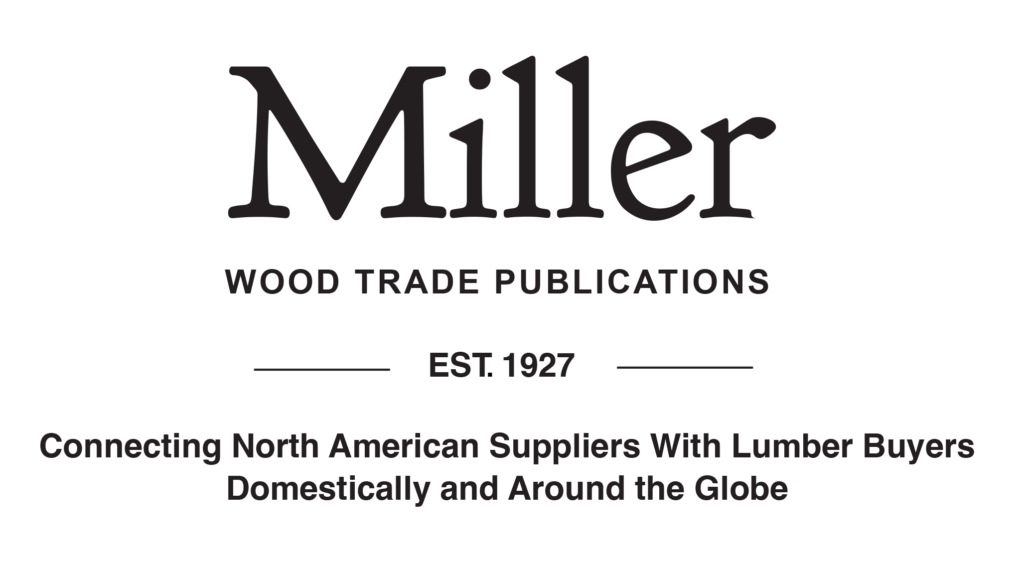Interest Rates, Tariff Uncertainty Impact West Coast Region
Throughout the West Coast region sources that were contacted at the time of this writing differed as to how their companies were faring in the marketplace. One source noted that due to the uncertainty in the economy and housing market that his sales have slowed. Another source stated that his company is currently doing better than they were six months ago despite interest rates.
A salesman whose company is based in Oregon said that his company is doing well. “We are able to move all of the lumber that we are currently sawing. We have also been able to move a fair amount of product into China with the recent renegotiation of tariffs,” he remarked, adding that this window of being able to sell product into the Chinese market has likely come to a close.
When asked if he was doing better or worse than he was six months ago, he said that his sales were better. “I think that we are doing better due to the fact that we were able to move so much product into the Chinese market with the pause on tariffs. Domestic sales have been hit or miss due to the uncertainty in the economy but we are still able to move our product domestically.”
His company offers Cherry in thicknesses of 4/4 through 8/4, as well as thicker stock on demand, Red Oak and Soft Maple in thicknesses of 4/4 through 8/4 and Hard Maple in 4/4 thickness. All species are offered in grades No. 3 Common and Better. “Cherry is not only our most sawn species, but it is also our most sought after, especially in the Chinese markets,” he noted. “While we do sell Cherry into the domestic markets, it is a preferred species in China, going into millwork, cabinets and furniture that stay there.”
His company sells to furniture, cabinet, millwork, stair parts and flooring manufacturers, wholesale distributors, distribution yards and pallet and crate manufacturers. “The larger cabinet manufacturers aren’t doing very well right now,” he said. “The smaller shops that are doing more custom work do seem to be doing better, however.”
A source noted that due to the uncertainty surrounding tariffs that many of his customers are watching the market day to day before they make any long term decisions.
In Washington, a lumberman attributed his sales being off from where they were six months ago to the uncertainty that shrouds the economy and the housing market.
His company offers Red and White Oak, Poplar, Hard and Soft Maple, Walnut, Fir and Cedar in a wide range of grades and thicknesses. When asked if one of the species that they offer was selling better than another he stated that they were all lackluster at the time of this writing.
He sells to distribution yards and millwork shops. “A lot of my customers are watching the market day to day and waiting to make any long-term decisions until it is clear that their order files are going to get stronger,” he stated when asked if he has heard any comments from his customers.
He noted that he believes that tariffs are the cause behind the uncertainty in the market and that they have also caused the prices on certain items to go up.
A lumber spokesperson in California said that his business was doing well at the time of this writing. “We are doing a little bit better than we were six months ago,” he said. “Although, I’m not exactly sure why our sales are better than they were with the way interest rates are.”
His company offers Rift White Oak, White Oak, Poplar, Cherry, Maple, Walnut, Beech, Alder, Mahogany and Sapele in thicknesses of 4/4 through 8/4 and in all upper grades. “Rift White Oak and Walnut still seem to be the species of choice in our area,” he said when asked if there was one species that was selling best for him.
His company sells to cabinet manufacturers, distribution yards and contractors. “They are all optimistic with the jobs that they have been able to line up,” he noted.
He mentioned that while he isn’t having any issues finding transportation that it has become more expensive.
When asked if tariffs have impacted his business, he said that they have impacted the price on some of his imported stock. “When the final word comes down on the tariffs there will be adjustments that we will have to make,” he said. “Right now, it is the fear of tariffs that are really impacting us more than anything.”










